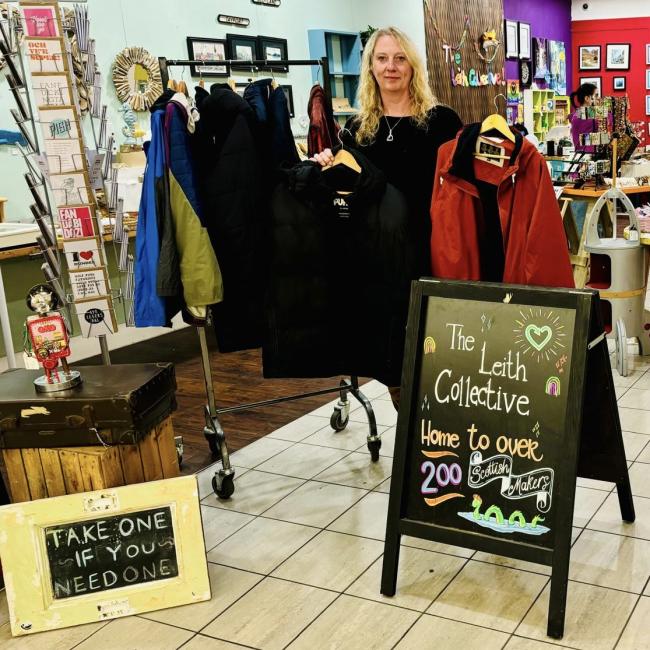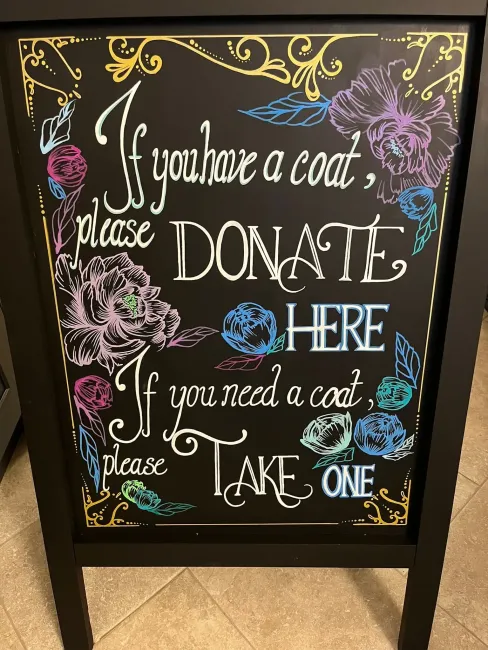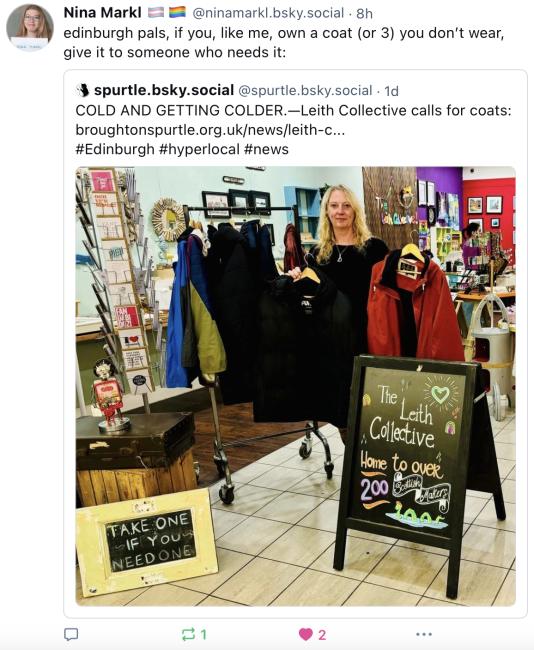
The Leith Collective launched its Winter Coat Exchange on 1 October.
Last year, it redistributed over 7,000 free coats to those in need, no questions asked. This year it predicts that, with the energy price cap rising by 10%, even more people will need to use the service. Demand is already outstripping supply.
For Spurtleshire-based readers, the nearest place to collect or donate a coat just now is The Leith Collective’s outlet on the first floor in Ocean Terminal (Mon–Fri, 10am–6pm; Sun, 11am–5pm). For readers elsewhere in Scotland, there’s a map of locations here.
All coats and waterproof jackets (for children and adults) are made available free of charge. Fur coats are not accepted.
To improve access to good-quality coats for more people, the Leith Collective is calling on organisations, businesses, charities and community groups to act as official exchange collection points by registering here.

Sara Thomson (pictured) says, ‘We have been running the Winter Coat Exchange at The Leith Collective for four years, but this is the worst I have ever seen it. And we are only at the start of the winter.
‘The ongoing cost of living crisis and the hike in heating prices have left people seriously struggling to afford basic essentials such as a warm coat. So I am encouraging people everywhere to donate whatever they don't use and I'm imploring local organisations to sign up to become collection points, so we can help to make a difference.’
In its state-of-the-nation ‘Poverty in Scotland’ report last year, the Joseph Rowntree Foundation found that:
Over one million people still live in poverty in Scotland, with nearly half of those (490,000) living in very deep poverty.
The statutory child poverty reduction targets are unlikely to be met without significant additional Scottish Government action.
While the Scottish Child Payment is likely to reduce child poverty, the growth of in-work poverty is holding back further progress.
Just over 10% of workers in Scotland are locked in persistent low-pay; i.e. they are paid below the real Living Wage – 72% of them are women.
Five high-priority industries play a key role in maintaining in-work poverty: retail, hospitality, manufacturing, health and social work, and the administration and support services.
Got a view? Tell us at spurtle@hotmail.co.uk

---------------





